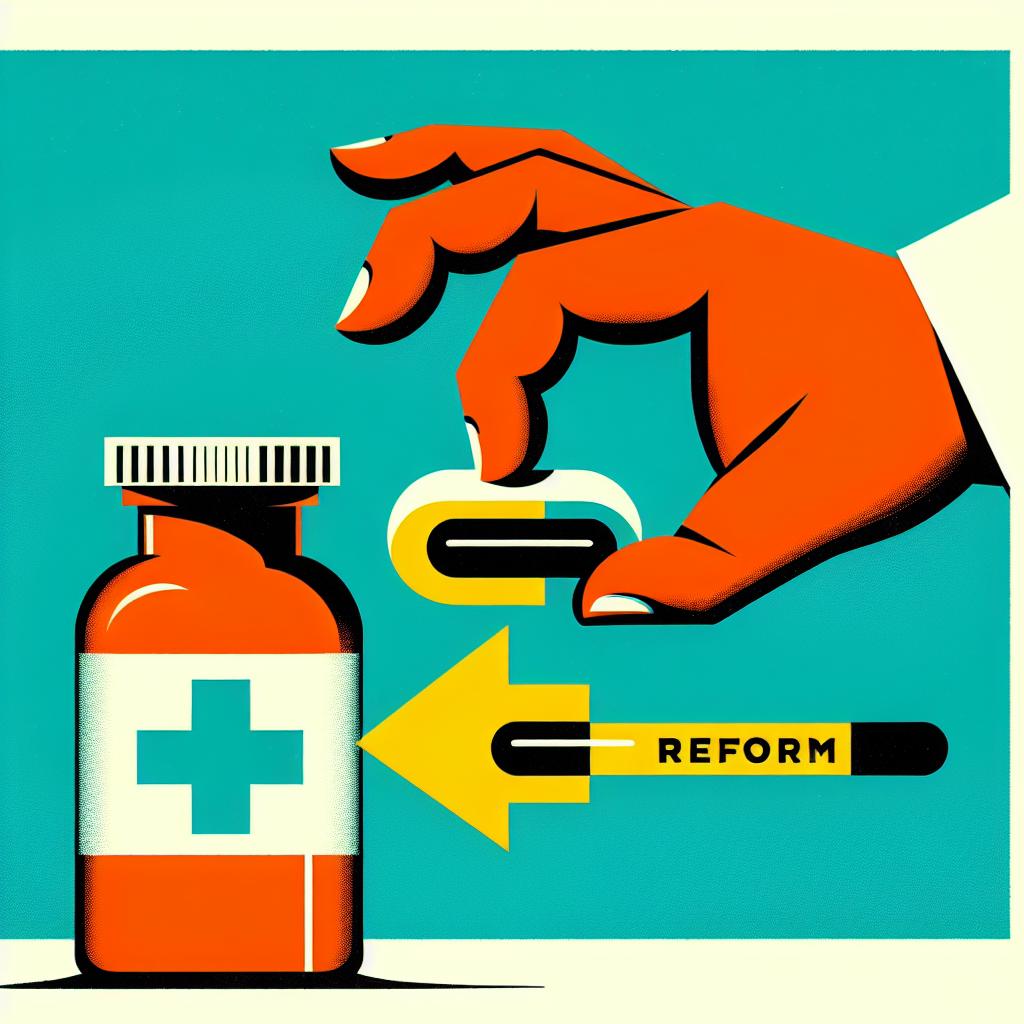A Growing Consensus on Drug Pricing
Prescription drug prices in the United States have become a contentious topic that cuts across party lines. Recent efforts to lower these prices continue to gain traction among lawmakers from both sides of the aisle. An overwhelming consensus is forming around the need for significant reform aimed at making medications more affordable for all citizens.
Currently, one of the most high-profile proposals involves allowing Medicare to negotiate directly with pharmaceutical manufacturers regarding drug prices. This idea has been a long time coming, being championed by many within the Democratic Party while slowly gaining support from Republican legislators as well. The rationale is simple and backed by statistics; according to a 2021 report from the House of Representatives, negotiating drug prices could save Medicare $500 billion over a decade.
Many, if not most, Americans will find this initiative a welcome change. A recent survey indicated that 88% of voters believe Medicare should have the authority to negotiate drug pricing. That sentiment reflects a broad public desire for increased government intervention to reign in potentially exploitative pricing models employed by pharmaceutical companies.
Legislative Moves Toward Change
Legislation aimed at capping out-of-pocket costs for seniors has emerged as another potential lifeline for those disproportionately impacted by rising medication costs. This proposal would protect seniors from the astounding premiums often incurred, particularly for life-saving treatments or medications crucial for managing chronic conditions.
The term *out-of-pocket costs* refers to what patients must spend on medications before insurance kicks in. For many older Americans, these costs have skyrocketed, leaving them vulnerable to both financial turmoil and, in more dire circumstances, the inability to access necessary medications altogether.
Important to note is the influence of big pharmaceuticals on drug pricing. A 2020 study published in the *Journal of Health Economics* found that drug prices in the U.S. are approximately four times higher than those in other countries. Numerous proposed reforms, including those under consideration now, hope to bridge this gap.
With these conversations gaining attention in congressional hearings and forums alike, the political landscape appears ripe for substantive discussions around drug pricing reform. Although hurdles remain, especially from lobbying groups vehemently opposed to government negotiations, advocates are optimistic about potential pathways forward, with bipartisan dialogues seemingly becoming more constructive.

The Weight of the Issue on the Public
Underlying this push for reform are testimonials from thousands, if not millions, of Americans who struggle to meet their healthcare needs due to exorbitant drug costs. Astonishingly, the World Health Organization has reported that 10% of U.S. citizens forgo prescribed medications due to their costs, indicating a serious public health issue exacerbated by the existing framework.
Moreover, the data suggests that complications arising from such decisions are dire. The earlier-mentioned 2021 House report indicated that lack of affordability in medications has led to increased hospital visits and emergency care cases, ultimately leading to annual costs in the hundreds of billions for both insurers and taxpayers.
In short, the proposed legislation isn’t just about price negotiations; it’s about the very lives and well-being of Americans across the country. The ripple effects of cheaper prescription drugs would reach well beyond consumer wallets, potentially alleviating overwhelming financial burdens on both families and the broader healthcare system.
The Road Ahead
As legislative bodies continue to deliberate over these proposals, the commitment from both sides to engage in genuine discussions bodes well for meaningful reform. It remains to be seen how quickly any changes can be enacted, but the growing momentum signals a shift in priorities: largely fueled by the public demand for real solutions to entrenched issues, including the affordable access to necessary medications.
In this critical juncture, the involvement of Cross-Partisan efforts is crucial. Should lawmakers prioritize the interests of corporate pharmaceutical entities over the health of their constituents? Neither party can afford to ignore the potential electoral backlash from voters dissatisfied with sluggish legislative progress.
Highlighting Success Stories and Expert Opinions
Health policy experts echo the sentiments trending in Congress. Dr. Wendy NE, a noted scholar from the Stanford Institute for Economic Policy Research, finds that negotiating allows not only Medicare to save costs but potentially ensures fewer bankruptcies related to medical debt. “These discussions aren’t just beneficial for budgets; they’re fundamentally about protecting American families,” Dr. NE proclaimed in a recent PBS interview.
Success stories are bound to emerge as the legislative proposals move from discussion to tangible action. If Democrats and Republicans can coalesce around these meaningful reforms, they will not only have a significant impact on drug prices but simultaneously prove that cooperation is achievable, even in an often divided political climate.
Keep a close eye on developments for clues about how bipartisan action will unfold concerning prescription drug pricing. With citizen support integrated into policy-making processes, a more affordable landscape appears not only beneficial but essential for securing health equity in this nation.



